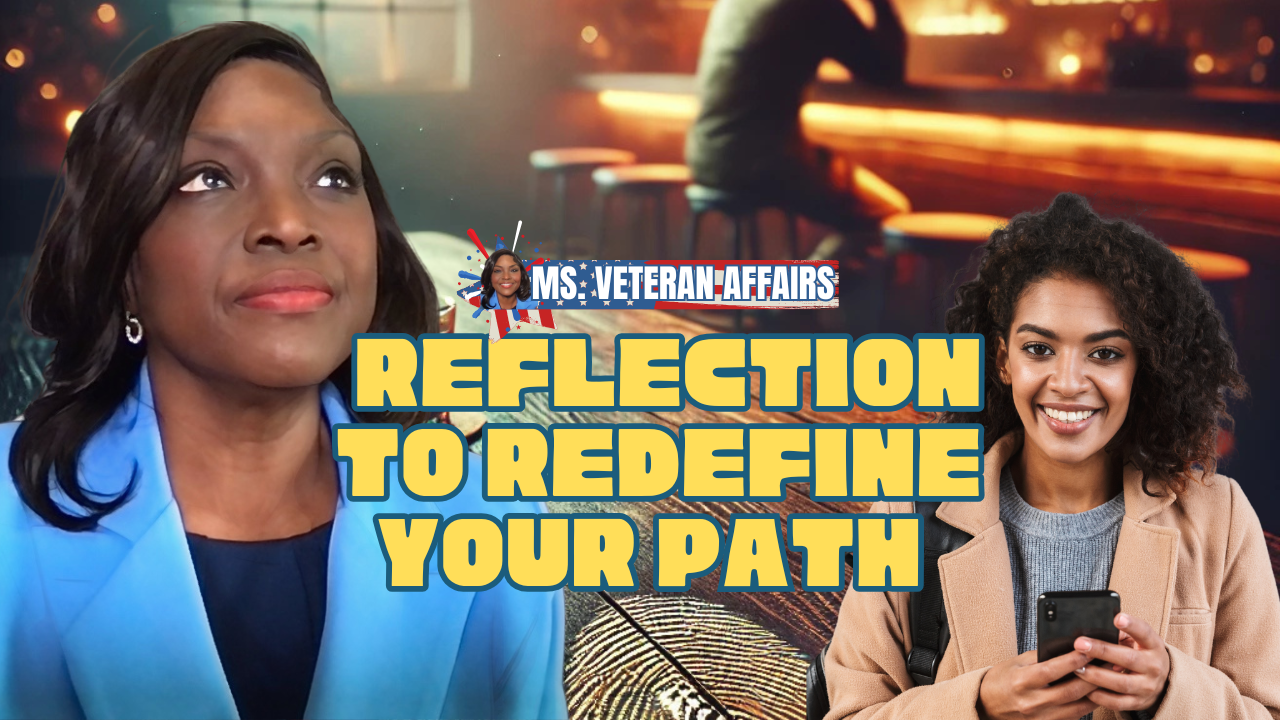Communication Tips for Military Families After Deployment
Apr 15, 2025

Why Ms. Veteran Affairs Says Communication is Key for Military Families (Military Wives & Their Children)
The small park buzzed with the sound of children laughing and parents chatting, but Adam sat on the bench, his shoulders tense, staring at his phone. He had been back from deployment for six months, yet home didn’t feel like home. His wife, Claire, seemed distant. His two kids, once chatterboxes, now treated him like a stranger. He sighed and muttered, “I just don’t know how to fix this.”
Ms. Veteran Affairs, sitting nearby with her youngest grandson, noticed Adam’s frustration. She recognized the look—a blend of guilt, exhaustion, and longing that she had seen in her own husband’s eyes after he left the service.
“Rough day?” she asked gently.
Adam glanced at her, hesitant, but something in her tone encouraged him to open up. “I just don’t know how to talk to them anymore. Claire and I... we’re always arguing or avoiding each other. And the kids... they barely say two words to me.”
Ms. Veteran Affairs nodded, her gaze thoughtful. “That’s not uncommon. Military life changes us, and it changes them too. But let me tell you, communication saved my family more times than I can count. If we didn’t make the effort to talk—to really talk—we would’ve fallen apart.”
The Emotional Impact of Service
She began by acknowledging his feelings. “When my husband came back from deployments, there was always a gap to bridge. He’d been living in high-stakes environments, and we were living in our own version of survival mode back home. That gap is normal—but it’s not permanent.”
Adam leaned in, eager to learn how to navigate the distance.
“First, recognize that everyone’s emotions are valid—yours, your wife’s, your kids’. Military life affects everyone differently. Sometimes, the frustration you feel isn’t about them but about the adjustment itself.”
Creating Safe Spaces for Conversation
“One of the best things we did as a family was creating safe spaces to talk,” she continued. “It doesn’t have to be formal—just moments where everyone knows it’s okay to share how they’re feeling without fear of judgment.”
Adam frowned. “What if they don’t want to talk?”
“They might not at first,” she admitted. “Especially the kids. But consistency matters. Start small—ask about their day, share something about yours. It’s not about forcing a heart-to-heart every time, but showing them that the door is always open.”
The Power of Active Listening
Ms. Veteran Affairs leaned forward. “Here’s a hard truth I had to learn: sometimes, we’re so focused on fixing things that we forget to really listen. Active listening means hearing what they’re saying without jumping in with solutions or defenses. It’s about validating their feelings, even if you don’t agree.”
She shared an example from her own life. “One time, my son told me he was angry that his dad missed his soccer games. My first instinct was to explain why, to defend his service. But I stopped myself and just said, ‘I understand why you’d feel that way.’ That moment mattered to him—more than any explanation I could’ve given.”
Family Meetings as a Tool
Ms. Veteran Affairs suggested a practical strategy. “Try holding regular family meetings. It doesn’t have to be anything fancy—just a time to sit down together, share updates, and set goals. It’s amazing how much clarity those little check-ins can bring.”
Adam scribbled notes on his phone. “What kinds of things should we talk about?”
“Start with simple things: What’s going well? What’s been hard? What can we do better as a team? It’s about building trust and reminding each other that you’re in this together.”
Communicating with Kids
“Talking to kids is a whole different ball game,” she said with a smile. “You have to meet them where they are. With younger kids, keep it simple and playful. With older ones, be honest, but don’t overwhelm them with adult worries.”
She paused, her voice softening. “Most importantly, be present. Put the phone down, make eye contact, and show them you’re there—not just physically, but emotionally.”
Practical Tips for Better Communication
As their conversation wound down, Ms. Veteran Affairs shared some final tips:
- Start with small steps: Don’t expect deep conversations right away. Build trust through consistent, open dialogue.
- Use “I” statements: Focus on your feelings and needs instead of placing blame. For example, say, “I feel disconnected,” instead of, “You don’t talk to me.”
- Schedule one-on-one time: Spend individual time with your spouse and each child to strengthen those unique bonds.
- Practice patience: Healing relationships takes time, but every effort matters.
Adam sat back, his expression lighter. “I think I can do this. It’s not going to be easy, but I want my family back.”
Ms. Veteran Affairs smiled warmly. “You’ve already taken the first step by recognizing the need to reconnect. Just remember—it’s not about getting it perfect. It’s about showing up, day after day, and proving to them that they matter. That’s what keeps families strong.”
Discussion Questions
1. How can creating safe spaces for conversation improve relationships within military families?
2. What challenges do veterans and their families face when trying to reconnect after deployment, and how can communication help bridge those gaps?
3. Why is active listening an essential skill in family communication, and how can it help validate the feelings of loved ones?
4. How can regular family meetings or check-ins strengthen family bonds during periods of transition?
5. What strategies can parents use to adapt communication styles when talking to children of different ages about military life and transitions?
Join our community today!
Gain fresh insights every week—concise, impactful lessons designed to elevate your thinking, enhance self-awareness, and empower purposeful growth.
We hate SPAM. We will never sell your information, for any reason.












